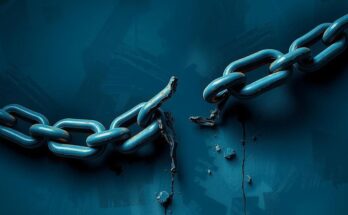The M23 rebels have taken control of significant areas in Goma, eastern DRC, leading to civilian protests and escalating clashes. As thousands flee the violence, international calls for a ceasefire grow stronger, with Rwanda’s President Kagame indicating a willingness to engage diplomatically. The region remains fraught with complex ethnic tensions and armed conflict, necessitating urgent humanitarian support and a comprehensive resolution strategy.
The M23 rebel group has significantly expanded its territorial control in eastern Democratic Republic of the Congo (DRC), capturing critical areas, including parts of Goma and its airport. The United Nations reported that the advancements have compounded the ongoing humanitarian crisis, compelling thousands to flee, while the government forces continue to hold select pockets of the city. Many residents reported that the rebels had asserted authority over major parts of Goma after weeks of intensified conflict.
Following the escalating violence, protests erupted in Kinshasa, with citizens expressing disapproval of the Rwandan-backed M23 insurgents’ aggressive actions. The situation on the ground remains dire as missile strikes and attacks have placed immense pressure on a healthcare system that is already overwhelmed. Despite the precarious circumstances, Rwanda’s President Paul Kagame has joined international calls for a ceasefire, indicating a potential opening for diplomatic negotiations.
Rwanda’s involvement has drawn significant scrutiny as it denies backing for the M23 despite numerous reports from U.N. experts suggesting the presence of Rwandan forces in the region. The ongoing conflict sees a complex web of historical grievances, with Rwanda accusing the Congolese government of harboring Hutu rebels linked to the 1994 genocide. DRC’s Foreign Minister has stated that engaging in talks with M23 is essential to bring stability to the region.
M23 aims to establish governance in the captured territories to ensure that civilians can live normal lives and allow displaced individuals to return home. However, observers have warned that achieving a withdrawal agreement with the group may not be straightforward, especially considering their strengthened position supported by Rwanda. Analysts indicate that the dynamics surrounding the conflict have changed since M23’s last incursion in 2012, complicating future resolution efforts.
Overall, the situation in eastern DRC remains precarious, with ongoing threats to peace and security. The urgent need for international intervention and dialogue becomes increasingly apparent amidst mounting civilian suffering and displacement, underscoring the fragile nature of the region’s peace prospects.
The M23 rebel group has a complicated history in eastern DRC, originating from previous conflicts involving ethnic tensions and political strife. The group, largely composed of ethnic Tutsis, re-emerged around 2021, claiming to address grievances related to discrimination and violence against their community. The ongoing conflict has drawn in neighboring Rwanda, intensifying its impact on regional stability. The situation in Goma exemplifies the broader issues of militancy and ethnic strife that plague eastern Congo, which is rich in minerals but marred by instability. The presence of over one hundred armed groups in the region exacerbates the humanitarian crisis, with many civilians caught in the crossfire. Displacement remains a key concern as thousands are forced to flee their homes in search of safety. The political implications of the M23’s advances are significant, highlighting the fragile balance of power in the DRC and the persistent need for international intervention to restore peace and stability.
In summary, the M23 rebels’ recent control of parts of Goma signals a critical and escalating crisis in eastern DRC, compounded by historical grievances and foreign involvement. The call for a ceasefire led by President Kagame illustrates the urgency for diplomatic dialogue to address the long-standing conflict. However, securing a comprehensive resolution poses considerable challenges as tensions continue to rise amidst ongoing violence and humanitarian distress.
Original Source: apnews.com




